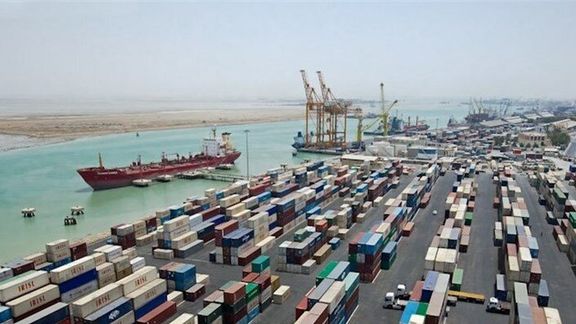Iran’s Government Scrambles To Somehow Lower Price Of Imports

Contradictory statements by Iranian officials this week have observers and journalists scrambling to understand what the government wants to do with imports.

Contradictory statements by Iranian officials this week have observers and journalists scrambling to understand what the government wants to do with imports.
First the news came that the government was planning to restore the policy of offering cheap dollars to importers of essential goods, which would completely reverse its decision in early May to remove the indirect subsidy. Then it was clarified that the government is lowering its calculation for import taxes of some goods to prevent further rise in its already 55-percent annual inflation.
One thing which is clear is that top economic officials are contradicting one another about how they exactly want to mollify the effects of their “major economic surgery” in May that led to prices doubling for many essential goods. Reports say the government has presented a bill to somehow lower cost of imports for consumers.
Removing the indirect subsidy of offering cheap dollars ($1=42,000 rial) to importers has resulted in a massive hike in prices for most commodities including basic foods, medicine and medical equipment, animal feed and many other commodities despite government’s promises that it would not affect the prices of anything other than bread, chicken, eggs, oil and dairy products.
Reportedly, the new bill submitted to the parliament Monday, will lower import taxes for some basic commodities, but the mechanism remains foggy. The most likely decision will be to calculate import duties not by the actual rate of the dollar in the local market, but a fictitious rate eightfold lower, which applied when importers were receiving cheap dollars from the government until April.
Economy Minister Ehsan Khandouzi has explained that the government took the decision to prevent further price hikes in coming months.

Abbas Argoun, a member of Tehran Chamber of Commerce, told Etemad newspaper that the higher rate in the calculation of import taxes results in cash flow problems for producers and businesses, because imported raw materials become more expensive and production costs rise.
But Argoun explained that lowering import duties now will cut into government tax revenues to the tune of one billion dollars.
Ali Ghanbari, expert in international economy, told Fararu news website that the decision is unlikely to reduce prices of imported goods or the cost of production.
“Instead of such hasty policies, the government must be seeking fundamental solutions to control inflation and high prices,” he said, adding that inflation and prices of basic commodities will continue to increase given the continuation of US sanctions and uncertainties regarding restoration of the 2015 nuclear deal.
Criticizing the government's decision to revive the 42,000 rial rate in import tax calculations, Hamidreza Salehi, a member of Tehran Chamber of Commerce, said to bring prices down the government could have reduced tariffs instead which could cause much less confusion and problems.
To compensate the hike in the prices of essential foods the government is paying around 4 million rials (about $15) to 30 percent of the population at the lowest-income groups, and around 3 million to 60 percent of the population each month. This means the government must spend the equivalent of $850-900 million a month to placate an impoverished population. It cannot afford such a huge cash handout every month and in fact, it has not paid the July stipend.
The special exchange rate was introduced in 2018 to control inflation when the United States pulled out of the Obama-era nuclear agreement known as JCPOA and imposed crippling sanctions on the Islamic Republic.